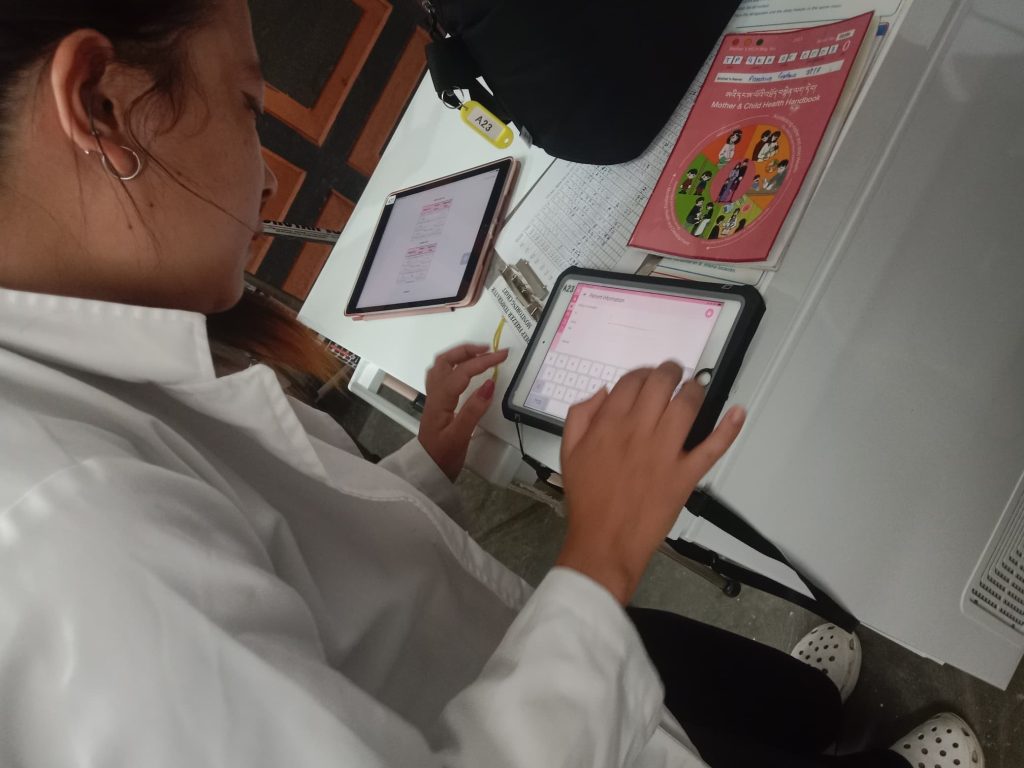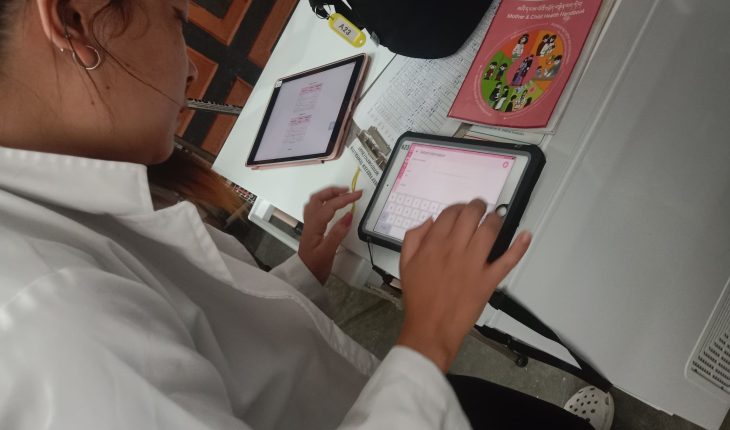
DAWA ZANGMO | Thimphu
n the remote gewogs of Genyenkha, expectant mothers no longer need to endure long and difficult journeys for essential prenatal check-ups.
The introduction of Mobile Cardiotocography (iCTG) services at the Genyenkha Primary Health Center has revolutionized maternal healthcare, making specialized support available right at the community level.
For 32-year-old mother Ugyen Dema, this new service has been life changing. Smiling as she cradled her healthy newborn, she said she felt relieved and grateful for the care she received.
“It brings me immense happiness to see my baby growing strong and healthy. I truly appreciate the Genyenkha Primary Health Center for providing iCTG services during my pregnancy,” she shared.
Coming from a modest background, Ugyen Dema said the telemedicine system eased both her financial worries and the strain of travel.
She said that with the iCTG facility available in her community, she did not have to travel to a larger hospital for routine monitoring.
“Because of the iCTG service, I didn’t have to go to Thimphu. The care I received here was just as good as what I would have received in the capital,” she said.
“The center is well maintained and provides high-quality care. Thanks to their excellent service, I was able to have a safe and normal delivery.”
She expressed her gratitude to the Government of Japan for supporting the project, saying that their contribution has made maternal care safer and more accessible for women in rural areas.
“Their support has made women’s lives much easier and safer. I am very thankful,” Ugyen Dema added.
For 27 years old Passang Gyalmo, who is currently using the iCTG service, shared a similar experience. She said the technology has made maternal care more accessible and less stressful.
“The iCTG service is very convenient. It feels like the doctor from the main hospital is right here with us. We receive expert advice without needing to travel long distances,” she said.
Healthcare professionals at the Genyenkha Primary Health Center also acknowledged the positive impact of the technology on their work. Karma Choden, a Health Assistant at the center, said the system has improved both efficiency and accuracy in patient care.
“The iCTG devices have been extremely helpful. They provide precise readings quickly, and the technology is very advanced,” she explained. “It helps us save time and allows us to attend to more patients each day.”
However, Karma Choden also mentioned that there are occasional technical challenges.
“At times, the equipment does not function properly, which can make maintenance a bit difficult. But we now have trained staff who can handle repairs and maintain the system,” she said.
She added that she herself has received technical training to perform basic maintenance and ensure the services run smoothly without disruption.
The iCTG initiative is part of a larger national effort to strengthen maternal and child healthcare through telemedicine. Project Coordinator D.K. Bhujel explained that the program is specifically designed to improve pregnancy outcomes, particularly in rural and hard-to-reach areas.
“The main goal of this project is to make childbirth safer by providing improved monitoring and high-quality services to women, especially those in remote regions,” he said.
The project is funded by the Government of Japan and implemented through a technical cooperation scheme under the Japan International Cooperation Agency (JICA).
Running from March 2023 to February 2026, the initiative is being led by Ministry of Health, which is working to ensure that essential services reach women who need them most.
Japan’s contribution, worth Nu 60 million, includes the supply of telemedicine equipment, training for healthcare personnel, and ongoing expert support to sustain the program.
JICA’s involvement has been crucial in ensuring that even the most remote health centers are equipped with modern medical devices and staffed with trained professionals.
Local health workers have received hands-on training to operate and maintain the devices, ensuring the sustainability of the services beyond the project period.
According to officials from JICA, the initiative reflects Bhutan’s growing focus on using technology and innovation to strengthen rural healthcare systems.
“As Bhutan works toward enhancing rural healthcare, the Genyenkha model stands as a strong example of what can be achieved through innovation and collaboration,” D.K. Bhujel noted. “It demonstrates how technology and partnership can make maternal care both accessible and effective.”
For mothers like Ugyen Dema and Passang Gyalmo, the iCTG service is far more than just a medical device it represents safety, dignity, and peace of mind.
With the technology, they receive timely monitoring, expert consultations, and reassurance during one of the most critical stages of their lives.
As the country continues to bridge gaps in healthcare accessibility, initiatives like this one are reshaping Bhutan’s health landscape.
The iCTG project is not only reducing maternal risks but also promoting confidence among women and healthcare providers in rural communities.





